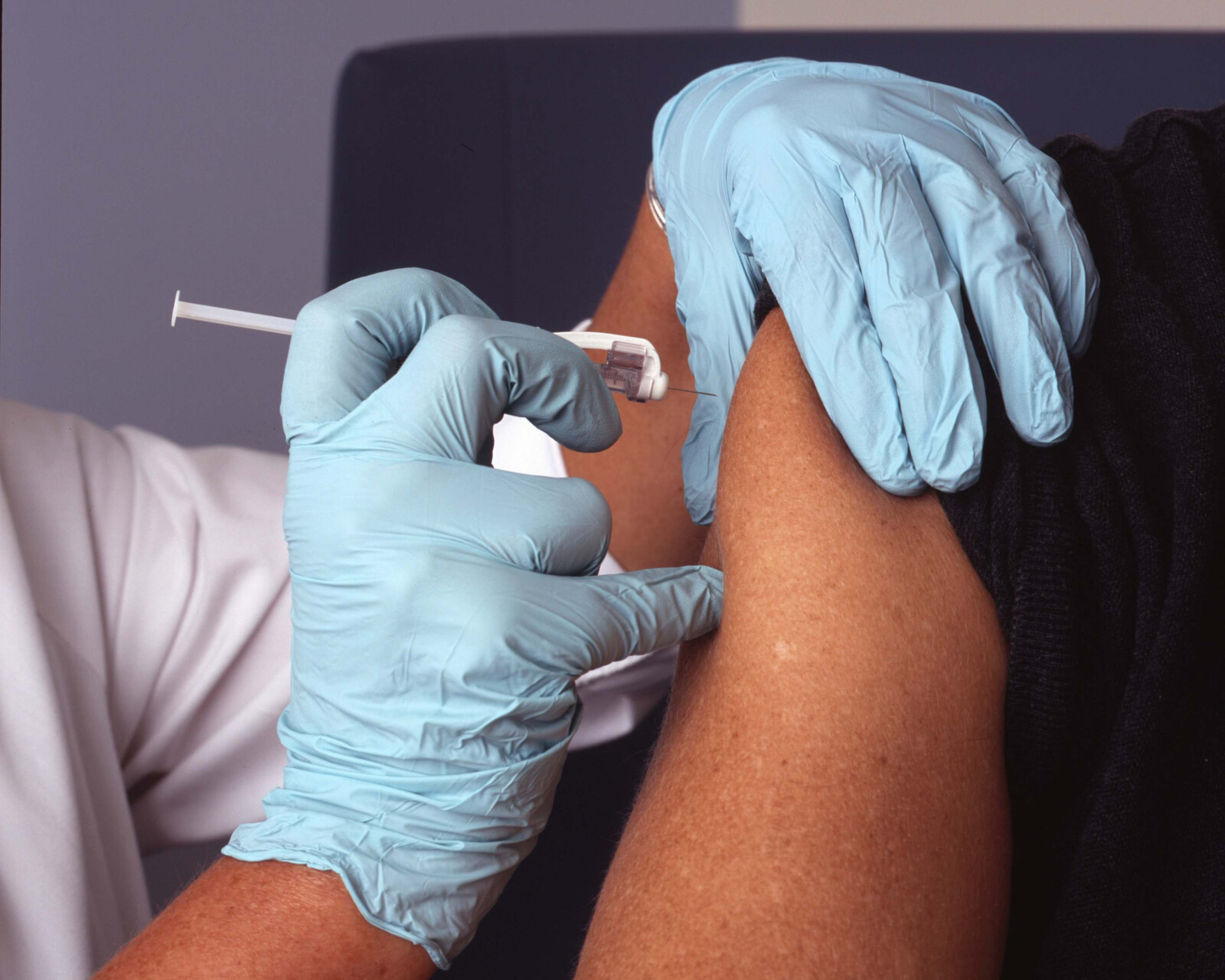Medical Breakthrough: New Hope for Soft Tissue Sarcoma
This article explores critical advancements in the realm of soft tissue sarcoma treatments. Shedding light on the transformative power of genetic studies, innovative clinical trials, and groundbreaking therapies, it probes the future of patient care. The discussion underscores the significance of early screening and the evolving role of palliative care. Highlighting the potential of Nirogacestat and Atezolizumab, it foregrounds the global impact of these medical breakthroughs, offering new hope for soft tissue sarcoma patients worldwide.

Key Takeaways
- Recent advancements in medical science have brought about a breakthrough in soft tissue sarcoma treatment.
- Immunotherapy and targeted therapy have shown impressive results in fighting soft tissue sarcoma.
- Surgical techniques have improved, allowing for safe tumor removal with minimal damage to healthy tissue.
- The combination of immunotherapy, targeted therapy, and surgical advancements presents a promising future for soft tissue sarcoma patients.
Understanding Soft Tissue Sarcoma
Many types of soft tissue sarcoma exist, each with unique genetic characteristics and varying responses to treatments, making it a complex and diverse group of diseases to understand and manage. The biology of soft tissue sarcoma includes a myriad of chromosomal abnormalities and mutations which contribute to the tumorigenic process. Understanding these intricate genetic underpinnings is essential, as they can impact the clinical behavior of the disease and determine treatment strategies. Novel treatment approaches in soft tissue sarcoma aim to target these specific genetic alterations, offering a more personalized and potentially more effective therapy. These include targeted therapies, immunotherapies, and novel drug combinations. In essence, the increasing understanding of the biology of soft tissue sarcoma is paving the way for innovative treatments.
The Role of Genetics in Soft Tissue Sarcoma
In the realm of soft tissue sarcoma, genetics play a pivotal role in not only the development and progression of the disease, but also in the determination of treatment strategies and prognosis. Genetic testing has become an indispensable tool in identifying the presence of certain gene mutations that may increase the risk of developing this condition. Further, it aids in the formulation of personalized treatment plans. Genetic counseling, on the other hand, is crucial in helping patients and their families understand the implications of the results of genetic testing. It navigates the complex terrain of genetic risk and its potential impact on the individual and family, providing crucial support in decision-making processes related to treatment and preventative measures.
The Importance of Early Screening
Approximately 13,040 new cases of soft tissue sarcoma are diagnosed in the United States each year, underscoring the critical importance of early screening for this disease. The role of screening in identifying this often overlooked type of cancer cannot be overstated. Effective screening methods, while not yet universally available, hold the potential to dramatically reduce the mortality rates associated with the disease. Early detection through routine screening can lead to improved outcomes, as the disease is generally more treatable in its initial stages. Furthermore, it allows for more options in treatment plans, increasing the likelihood of successful recovery. Therefore, investment in early screening techniques for soft tissue sarcoma is imperative to enhance patient survival rates and overall quality of life.
The Evolution of Soft Tissue Sarcoma Treatments
Over the last few decades, there have been significant advancements in the treatment of soft tissue sarcoma, transforming the medical landscape and providing new hope for patients. The impact on patient outcomes has been substantial, with improved survival rates and quality of life. A notable evolution in treatment has been the introduction of targeted therapies, which work by zeroing in on specific genetic mutations in the tumor cells. These advancements in targeted therapies have led to more personalized treatment plans, limiting the severity of side effects and enhancing therapeutic efficacy. As our understanding of the disease continues to grow, so does our ability to provide more effective and tailored treatment options, fostering optimism in the face of a once daunting diagnosis.
The Breakthrough: New Hope for Soft Tissue Sarcoma
Recent advancements in the field of medical science have heralded a breakthrough in the treatment of soft tissue sarcoma, offering renewed hope for patients worldwide. The role of immunotherapy has become significantly prominent in this development, as it bolsters the body's natural defenses to fight cancer. In tandem, targeted therapy in soft tissue sarcoma treatment has shown impressive results, working by interfering with specific molecules necessary for the growth and survival of cancer cells. Furthermore, advancements in surgical techniques for soft tissue sarcoma have facilitated the safe removal of tumors while minimizing damage to surrounding healthy tissue. Collectively, these medical advancements present a promising future for those affected by soft tissue sarcoma.
The Science Behind the Breakthrough
To understand the science that underpins this medical breakthrough, we must delve into the intricacies of both immunotherapy and targeted therapy in the context of soft tissue sarcoma treatment. The scientific breakthrough primarily involves the harnessing of the body's immune system to attack cancer cells and the specific targeting of cancerous cells to minimize damage to healthy tissue. Research advancements have facilitated the development of drugs that can identify and attach to specific proteins on cancer cells, effectively 'marking' them for destruction by the immune system. Additionally, targeted therapies work by blocking the growth and spread of cancer cells while limiting harm to normal cells. This dual approach is leading the charge in the fight against soft tissue sarcoma.
How This Breakthrough Changes the Landscape
This significant medical advancement introduces a new era of hope and optimism for soft tissue sarcoma patients, and it dramatically alters the therapeutic landscape by offering potentially life-saving treatments. The potential impact on patient prognosis is profound; previously untreatable or difficult-to-treat cases may now be managed more effectively, potentially extending life expectancy and improving quality of life. The implications for treatment guidelines are equally significant. New therapeutic protocols can now be developed, incorporating this breakthrough as a viable treatment option. This could lead to updated guidelines that offer a more aggressive and targeted approach to soft tissue sarcoma management. In essence, this breakthrough not only offers a new ray of hope for patients but also paves the way for a transformative approach in treating this complex disease.
Patient Stories: Living With Soft Tissue Sarcoma
Navigating the challenges of living with soft tissue sarcoma, numerous patients have shared their personal journeys, offering insight into their experiences with this complex disease. Their narratives underscore the emotional toll and physical strain, while highlighting the resilience that characterizes their fight against soft tissue sarcoma. Treatment advancements have played a crucial role in this journey, with innovative therapies providing new hope and improved outcomes. The patient experiences shared are a testament to the power of medical progress and the indomitable human spirit. Each story is unique, yet they all share a common thread of courage and determination. They serve as an inspiration, reminding us of the importance of ongoing research, patient-centered care, and the pursuit of a cure.
Side Effects and Management in Sarcoma Treatment
A significant number of patients undergoing sarcoma treatment may experience some side effects, necessitating effective management strategies to enhance their quality of life. Side effects management is a critical component of care, which includes managing symptoms such as pain, nausea, and fatigue. The introduction of new treatment options has allowed for more personalized and targeted therapy, potentially reducing the severity of these side effects. Nonetheless, side effects may still occur, requiring prompt attention and suitable interventions. This may involve a combination of medication, therapy, dietary changes, and physical activity. The ultimate goal of side effects management is to ensure patients can continue treatment while maintaining a good quality of life, and these new treatment options are a step in the right direction.
Supportive Care for Soft Tissue Sarcoma Patients
How can we provide optimal supportive care for soft tissue sarcoma patients, and what are the key components of such care that can enhance their quality of life? Patient support is pivotal and involves both physical and emotional care. Medical teams work together to manage symptoms and side effects, focusing on the patient's comfort, also known as palliative care. This includes pain management, nutritional guidance, and psychological support. Palliative care is not limited to end-of-life scenarios; it can be utilized at any disease stage to improve the patient's life quality. Additionally, support groups or counseling can help patients cope with the emotional burden of their diagnosis. It's crucial to note that every patient's needs are unique, and thus, their supportive care should be individualized.
The Future of Soft Tissue Sarcoma Research
In the years ahead, and with the rapid advancements in genetic research, the future of soft tissue sarcoma research holds promising prospects for the development of more effective treatments. The impact of precision medicine on soft tissue sarcoma treatment is anticipated to be significant, offering tailor-made therapies that target specific genetic mutations in each patient. These individualized treatments are expected to have fewer side effects and better outcomes than traditional methods. Additionally, emerging immunotherapy strategies for soft tissue sarcoma are poised to revolutionize treatment. These strategies aim to bolster the body's own immune system to fight the cancer cells, offering a potential new avenue for enhancing patient survival and quality of life. Indeed, the future of soft tissue sarcoma research is bright.
The Global Impact of This Breakthrough
This groundbreaking medical advancement in the treatment of soft tissue sarcoma is poised to have far-reaching implications on a global scale. The economic impact cannot be overstated, as this breakthrough promises to significantly reduce healthcare costs associated with long-term treatment and palliative care. With improved survival rates, patients will be able to contribute more to the economy, thereby boosting global productivity.
Furthermore, the breakthrough is likely to increase global awareness about soft tissue sarcoma, leading to more research investments and early detection initiatives. As this awareness spreads, more countries will adopt this innovative treatment method, translating to a global decrease in morbidity and mortality rates. Thus, this medical breakthrough offers new hope not just to patients, but to the global community.
How to Participate in Soft Tissue Sarcoma Clinical Trials
Participation in soft tissue sarcoma clinical trials is a vital step for patients seeking access to cutting-edge treatments, and it begins by understanding the application process and the potential benefits and risks involved. Clinical trial participation requires a thorough understanding of the eligibility criteria, which predominantly includes the patient's medical history, current health status, and the type and stage of sarcoma. Upon qualification, patients may gain access to innovative therapies before they are widely available, providing new treatment options that could potentially improve their prognosis. However, participants must also understand that potential risks exist, including unexpected side effects. It is crucial to have open discussions with healthcare providers to make informed decisions about participating in these trials.
Resources for Further Information
Regularly seeking additional information and resources can significantly enhance your understanding of soft tissue sarcoma. Resources for patients are numerous, offering diverse perspectives and data sets. The National Cancer Institute provides comprehensive information and supportive and palliative care options. Alternative treatments are also discussed in many platforms, including the American Cancer Society's website, which provides detailed information about varying approaches. Support groups, both online and in-person, can provide emotional support and practical advice. The Sarcoma Foundation of America and Sarcoma Alliance are also exceptional resources, offering patient assistance programs and research updates. Further, clinical trial databases offer the latest breakthroughs in treatment. Understanding one's options is key to navigating the path to recovery.
The Role of Health Professionals in Soft Tissue Sarcoma Care
In the comprehensive treatment of soft tissue sarcoma, both the expertise of health professionals and their coordinated teamwork play an essential role. This multidisciplinary care involves a collaborative approach from specialists such as oncologists, radiologists, pathologists, and surgeons. These professionals work together to develop an individualized treatment plan, aiming to improve the patient's prognosis and quality of life. Their expertise enables the precise diagnosis, optimization of the therapeutic strategy, and management of potential complications. Additionally, health professionals play a critical role in the ongoing care and support of patients, including palliative and rehabilitative services. Thus, the role of health professionals in soft tissue sarcoma care is pivotal, highlighting the importance of a collaborative, multidisciplinary approach in managing this complex disease.
Frequently Asked Questions
What Is the Average Cost of Treatment for Soft Tissue Sarcoma?
The average cost of treatment for soft tissue sarcoma can vary significantly based on factors such as stage of disease, type of treatment, and geographical location. Insurance coverage plays a crucial role in managing these costs. Experimental treatments, while promising, may not be covered by all insurance policies and could potentially incur higher out-of-pocket expenses. It's essential for patients to discuss all treatment options, including costs and insurance coverage, with their healthcare team.
Can Lifestyle Choices Such as Diet and Exercise Affect the Risk or Progression of Soft Tissue Sarcoma?
Lifestyle choices such as diet and exercise have not been definitively linked to the risk or progression of soft tissue sarcoma. These cancers are primarily driven by genetic predispositions, not environmental factors. However, a healthy lifestyle may improve overall health and enhance tolerance to treatment. More research is needed to confirm any direct impact on sarcoma prevention strategies. It's always advisable to maintain a balanced diet and regular exercise for general wellbeing.
Are There Any Non-Profit Organizations or Charities That Provide Assistance to Soft Tissue Sarcoma Patients?
Yes, several non-profit organizations provide assistance to soft tissue sarcoma patients. The Sarcoma Foundation of America, Sarcoma Alliance, and the Sarcoma UK are among these. These organizations conduct Sarcoma Awareness Campaigns and offer financial aid resources to patients for treatment costs, travel expenses, and other related expenditures. They also offer emotional support and educational resources to help patients understand their condition and cope effectively.
What Psychological Support Options Are Available for Individuals Diagnosed With Soft Tissue Sarcoma?
Psychological support for individuals diagnosed with soft tissue sarcoma is crucial for emotional coping. Several resources are available, including psycho-oncology services, counseling, and support groups that can provide emotional and practical assistance. Additionally, family therapy can mitigate the family impact, helping loved ones understand and manage the emotional burden. Online communities also offer peer support, while mindfulness techniques can aid in stress reduction. Each tool plays a vital role in a comprehensive psychological support strategy.
How Is the Quality of Life for Soft Tissue Sarcoma Survivors Compared to the General Population?
Survivorship challenges for soft tissue sarcoma survivors may impact their quality of life compared to the general population. Physical, emotional, and social adjustments can accompany the rehabilitation process post-treatment. Survivors may face long-term side effects, physical disabilities, and psychological distress. Additionally, regular follow-ups and fear of recurrence can also add to their overall stress. However, with comprehensive care, survivors can achieve a good quality of life, though it may differ from their pre-diagnosis state.
Conclusion
The recent advancements in soft tissue sarcoma treatment signify a significant shift in the oncology landscape. Revolutionary genetic studies, innovative therapies, and promising drug combinations offer new hope to patients worldwide. The invaluable role of healthcare professionals and the importance of early screening cannot be overstated. Participation in clinical trials and access to relevant resources are also integral for patient care. These breakthroughs illuminate the path towards improved patient outcomes, instilling optimism in the face of this challenging condition.

This post has been generated by AI and was not reviewed by editors. This is Not legal advice. Please consult with an attorney.




